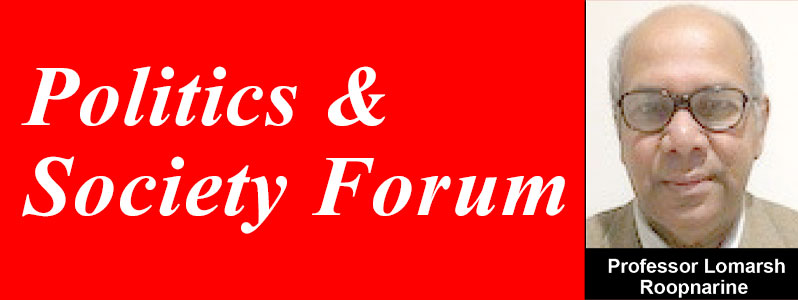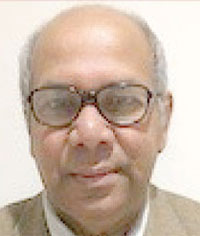IN some quarters, it is believed that some are learning how to write, some are developing writers, and some are natural-born writers. I am not sure where I fit into the aforesaid categorisations of writing. I rarely wrote and read only one book from cover to cover before I left Guyana at the age of twenty-one. The title of the book is “Bear Anancy and the Bird Cherry Islands.” I took one feature writing course in college in 1986. Apart from the general education courses, most of my courses in college centred around the social sciences, notably, in politics, sociology, and the history of the developing world.
My reading expanded enormously in the United States so much so that when students argue with me, rightly or wrongly so, I often say this to them. “You are young and smart, but I can assure you that I have read more than you.” The conversation generally moves from arguing to listening, revealing that one argues persuasively based on substance rather than emotion, and one receives substance from reading, reading, and reading. In local parlance, this means an individual who is not well-read is like a house without light, grasping for pathways of understanding through sheer darkness. I do not debunk oral traditions, but even then, one will need some level of substance to function, which corresponds with the application of substance achieved by reading.
I share the above to say that you too can explore and find ways to do things that you like. The following is how I start writing my column. It is based on raw talent. University schooling has interfered but not killed this part of me. I normally choose a topic that is in cahoots with current events, which does not have to be all local. It can be international, but it should have an impact on local affairs, for example, World AIDS Day. The title should be eye-catching and connected to the narrative you are producing.
Generally, columns should resemble an inverse pyramid in that the main idea of the column should be in the first paragraph. This will catch the attention of readers as opposed to readers searching for your main idea. The rule of reading a column is that readers will spend less than fifteen minutes reading and will spend lesser time if they do not get what you are saying in the first five lines of your column. So, in the first paragraph here, I have shared some general ideas of writers, and my experience in writing, and how it might pan out to encourage you to write columns. Notice, I do not mention that I am an expert writer.
What follows next is that you will have to provide at least three balanced points to back up what you are writing on. Columns tend to be between 650 and 800 words. Your points must be backed by evidence, evidence, and evidence. You will have to do some research, and a good way to present your points is to share some quotes, but not too many. Try to limit the use of foreign and complicated words. Every point must be connected to the overall narrative. Here, I have shared my experience in Guyana, United States, and College as points to provide a narrative to encourage you to write. I have presented the points in a layman’s perspective so that they would be inclusive and encouraging.
After you have discussed your points, you will then provide some sort of suggestion or solution. Here I offer a suggestion of encouragement. This is a vital aspect of writing columns because readers generally would like to know not only how you present an argument but also what suggestion or solution you might have to address the argument. In this case, you would have noticed that I offered ways in which you can write a column by building upon your own natural abilities.
In conclusion, writing columns do not mean that one must start as an expert, or as a natural-born writer. It is an endeavor that demands an understanding of the structure of how columns are written, continuous practice as well as supporting your narrative by providing evidence and solutions. Writing columns can be a rewarding experience since you will be contributing to the knowledge of events, and even the shaping of ideas in your society. Finally, you would have noticed that my conclusion married the introduction (lomarsh.roopnarine@jsums.edu).




.png)









